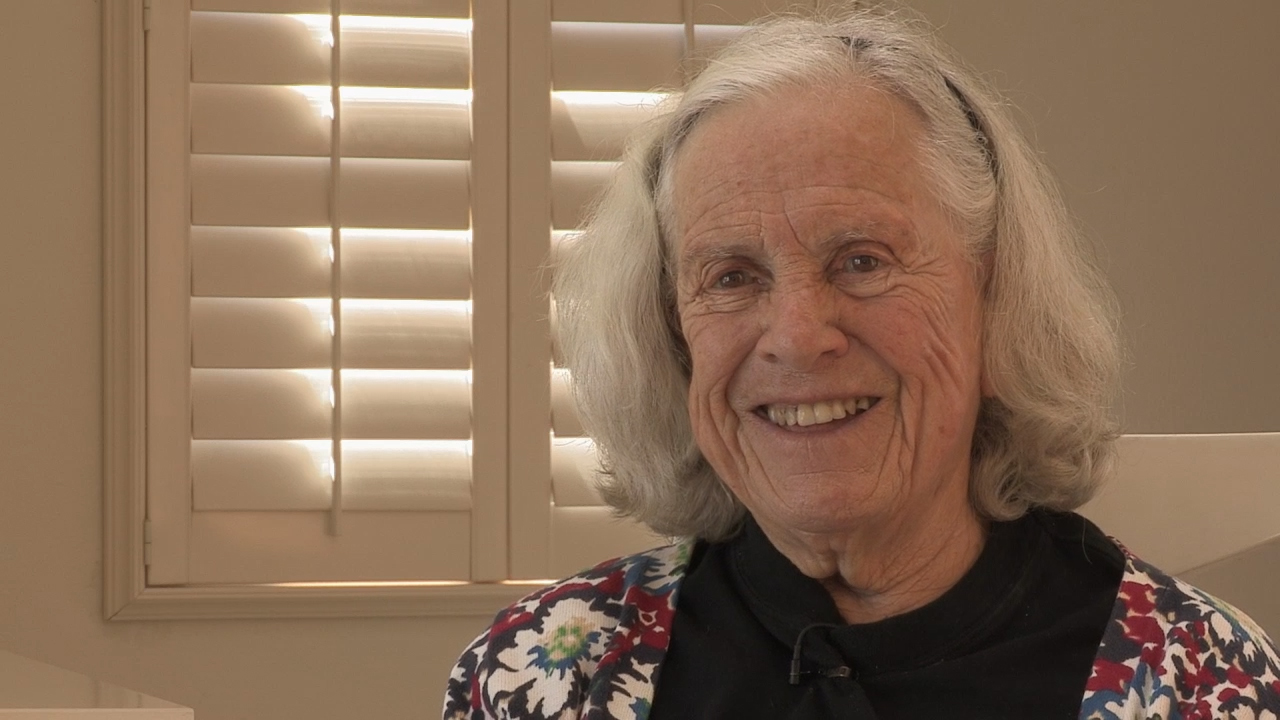NEXT STORY

My work and career: The NASA Exceptional Scientific Achievement Medal
RELATED STORIES

NEXT STORY

My work and career: The NASA Exceptional Scientific Achievement Medal
RELATED STORIES


[Q] What is it that you like about science?
Oh, it's a game. What you do is you watch something in nature. It's all around. There's a million things to watch. And then you notice something, and you think, why is that? Like, why do these flowers live in mud or something. It's not one of those things that I'm working on. I'm working on, do they bloom a second time? Anyway, it's most fun when you notice something that you don't understand. And then you notice maybe six months later, something that might explain it and then you work at getting the data, enough information about these two things to see if they're related. And when they are and it's something new that nobody else has or very few people have started to look at, when it's something new, it's a great feeling. It's really wonderful. Wow, it worked!
But it's just pleasure. And it has an advantage for women, which is not much looked at. When I was a teenager, the only thing a woman could be was a grammar school teacher, a first grade or kindergarten, a secretary typing somebody's letters for them, I don't know what else. There were nothing that was exciting and pleasant for women available. And so that's one of the major reasons I... And none of them made any money, nothing to bring a family up on. But people had accidents. Like my father died when I was young and in order to support a family I would need somewhere to make a living. So that besides it's much more fun is why I went into science and it was a very good idea. I don't know how I would have managed without it. So when people tell young women that no, they can't do this or no, they can't do that, it's terrible because it's making them cripples. They think they would like to do something – no, you can't. And the thing always is a high-level thing. Nobody really wants to scrub floors or... It's not the pleasure of cleaning things up. I've never heard of that.
Joan Feynman (1927-2020) was an American astrophysicist. She made important contributions to the study of solar wind particles and fields, sun-Earth relations and magnetospheric physics. In particular, Feynman was known for developing an understanding of the origin of auroras. During her career, Feynman was an author or co-author of more than 100 scientific publications. She also edited three scientific books. In 2002, she was awarded NASA's distinguished Exceptional Achievement Medal.
Title: My work and career: The pleasure of finding things out
Listeners: Christopher Sykes Alexander Ruzmaikin
Christopher Sykes is an independent documentary producer who has made a number of films about science and scientists for BBC TV, Channel Four, and PBS.
Tags: science, women, flowers, data, pleasure, living, cripple, cleaning
Duration: 3 minutes, 54 seconds
Date story recorded: April 2019
Date story went live: 05 November 2019